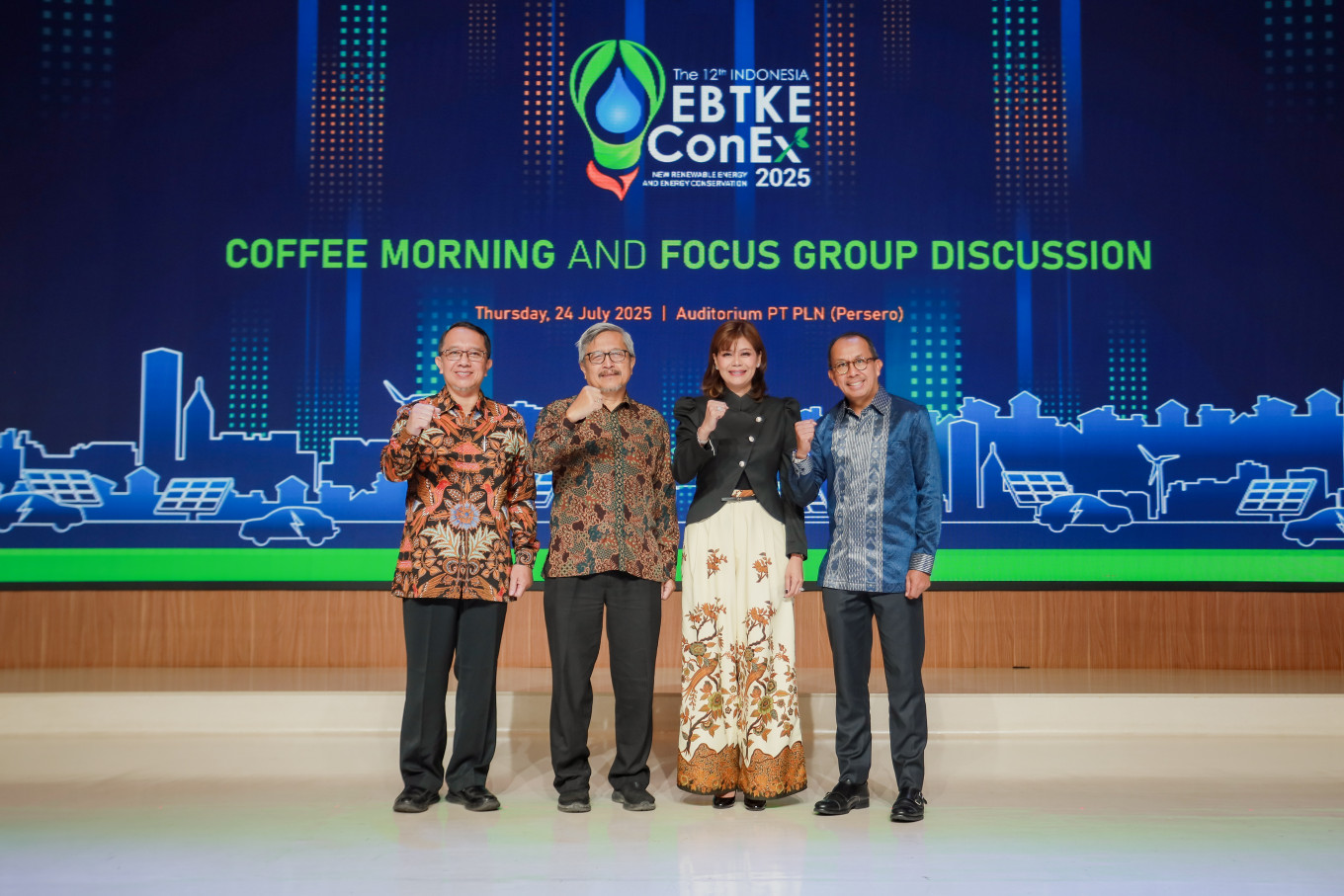Indonesia is accelerating its plans to shift toward cleaner and more sustainable power sources, with stakeholders gathering to discuss key strategies and challenges ahead of the EBTKE Conex 2025 event. The Indonesia energy transition has become one of the country’s most pressing economic and environmental priorities as it works to balance rapid economic growth with climate commitments and the global shift away from fossil fuels.
The event is expected to bring together policymakers, industry leaders, investors, and technology providers to explore collaborative solutions for renewable energy development, energy efficiency, and innovative financing schemes. With growing pressure to meet its net-zero targets and ensure energy security, Indonesia is positioning itself as a major player in the clean energy landscape of Southeast Asia.
Why Indonesia Energy Transition Is Critical Now
The Indonesia energy transition is driven by several key factors, including climate change concerns, international decarbonization commitments, and domestic economic resilience. As one of the largest coal producers and consumers in the world, Indonesia faces unique challenges in reducing carbon emissions while ensuring energy reliability for its population of more than 270 million people.
Energy consumption in Indonesia continues to rise as industrialization and urbanization accelerate. According to government data, electricity demand is projected to increase by 4.5 percent annually over the next decade. Without significant investment in renewable energy and energy efficiency, reliance on fossil fuels could hinder economic and environmental progress.
The government has already committed to reducing greenhouse gas emissions by 31.89 percent by 2030 under its nationally determined contributions (NDCs) and aims to achieve net-zero emissions by 2060 or sooner. These ambitious goals make the Indonesia energy transition an urgent priority, particularly as global investors increasingly favor low-carbon and environmentally sustainable projects.
Key Stakeholders Driving The Indonesia Energy Transition
The upcoming EBTKE Conex 2025 will serve as a key platform for collaboration among multiple stakeholders, each playing a vital role in advancing the Indonesia energy transition:
- Government Agencies: The Ministry of Energy and Mineral Resources (ESDM) and its renewable energy directorate, EBTKE, are leading policy reforms and regulatory frameworks to support renewable energy investments.
- Private Sector Players: Domestic and international companies are increasingly investing in solar, wind, hydropower, and geothermal projects, seeing significant opportunities in Indonesia’s vast natural resources.
- Financial Institutions: Banks and investment funds are exploring green financing mechanisms, including green bonds and blended finance, to support energy infrastructure.
- Civil Society And Academia: NGOs and research institutions are working to ensure the transition is socially inclusive, emphasizing community-based renewable energy and workforce development programs.
This multi-stakeholder approach aims to address not just technical and financial challenges but also social equity concerns, ensuring that rural communities and low-income households benefit from the Indonesia energy transition.
Challenges Facing Indonesia Energy Transition
Despite progress, several obstacles could slow the pace of Indonesia’s shift to renewable energy:
- Regulatory Complexity: Investors often face bureaucratic hurdles and unclear regulations regarding renewable energy tariffs and land acquisition.
- Coal Dependency: Coal remains a dominant source of electricity, accounting for over 60 percent of the energy mix. Transitioning away from coal will require careful planning to avoid economic disruption, especially in coal-producing regions.
- Infrastructure Gaps: Integrating renewable energy into Indonesia’s grid is challenging due to its archipelagic geography and limited transmission infrastructure.
- Financing Risks: While interest in green financing is growing, many renewable projects still struggle to secure funding due to perceived risks and long payback periods.
Addressing these challenges will require coordinated policy support, capacity building, and innovative investment models. The Indonesia energy transition is not just about technology but also about governance and long-term political will.
Opportunities Emerging From Indonesia Energy Transition
The shift toward renewable energy also opens significant opportunities for economic diversification and sustainable growth:
- Job Creation: The renewable energy sector has the potential to create thousands of new jobs in engineering, construction, and operations.
- Technology Transfer: Collaboration with international partners can accelerate the adoption of cutting-edge renewable technologies and expertise.
- Energy Access: Renewable energy, particularly solar and micro-hydro projects, can expand access to electricity in remote and underserved regions.
- Investment Attraction: A strong commitment to clean energy can attract foreign direct investment and green financing, positioning Indonesia as a regional leader in sustainability.
The EBTKE Conex 2025 event is expected to highlight these opportunities, with special focus sessions on green hydrogen, energy storage, and electric vehicle infrastructure. These innovations will be crucial in building a resilient and competitive energy ecosystem.
How Communities Benefit From The Transition
A successful Indonesia energy transition is not only about environmental targets but also about improving livelihoods. Rural communities that previously relied on costly and unreliable diesel generators can gain access to cleaner, more affordable energy. This, in turn, supports local economic activities such as agriculture, tourism, and small-scale manufacturing.
Furthermore, inclusive energy policies that prioritize workforce training and social protection can ensure that workers displaced from coal-related industries find new employment opportunities in the renewable energy sector. This “just transition” approach has become a key theme in discussions around the future of Indonesia’s energy system.
Outlook: Indonesia’s Path Toward Net-Zero
Looking ahead, Indonesia’s path toward net-zero emissions will depend on how effectively it implements the strategies discussed at EBTKE Conex 2025. Key measures include accelerating renewable energy deployment, improving energy efficiency, phasing out inefficient fossil fuel subsidies, and investing in innovative technologies like carbon capture and storage (CCS).
If successful, the Indonesia energy transition could position the country as a model for emerging economies seeking to balance growth and sustainability. With abundant renewable resources, a growing pool of skilled professionals, and increasing investor interest, Indonesia has the potential to lead Southeast Asia in the clean energy revolution.
However, time is critical. Achieving the desired outcomes will require strong policy alignment, transparent governance, and collaboration across all sectors. The discussions at EBTKE Conex 2025 represent an important milestone in shaping Indonesia’s sustainable energy future.
Read More






 Monday, 02-02-26
Monday, 02-02-26







